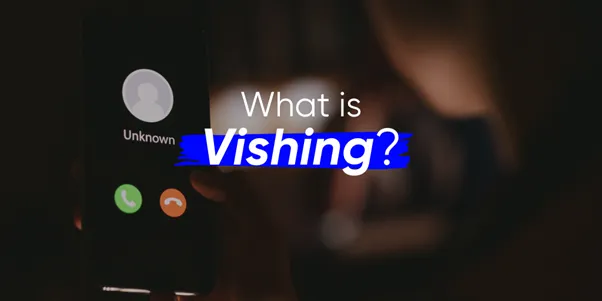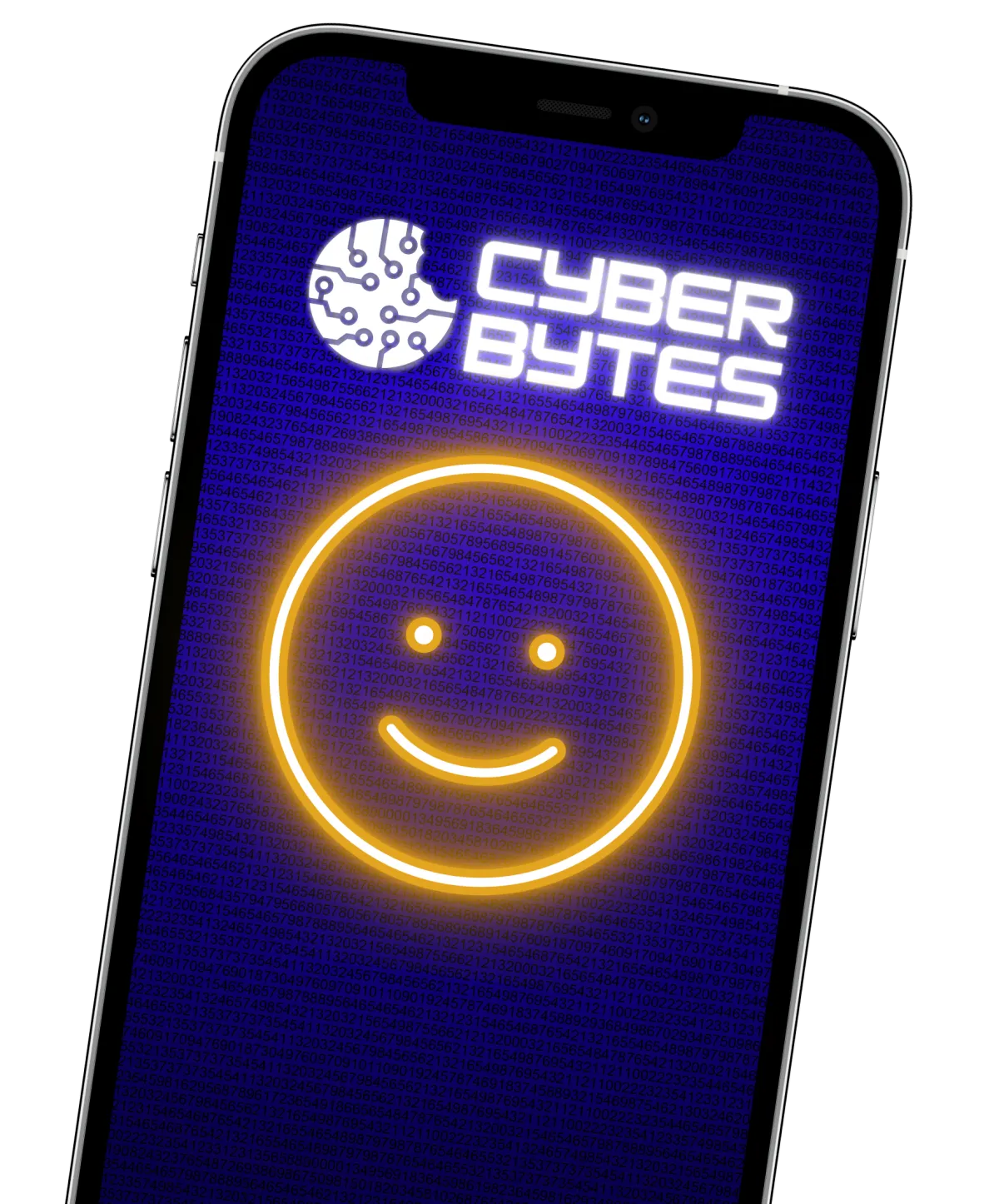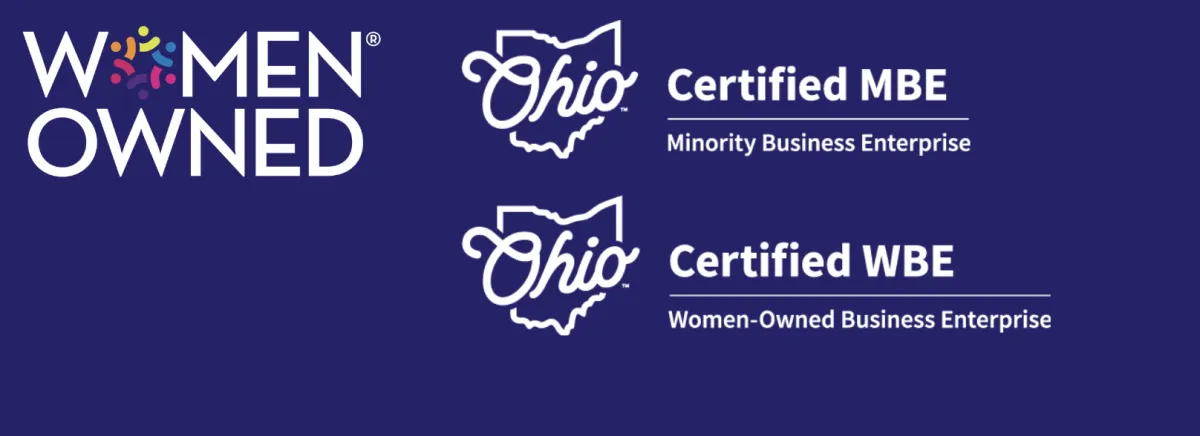You are what you click!
Learn how to make cybersecurity your way of life in an easy and guided way.
You are what you click!
Become Cyber savvy
EXPLORE BLOG BELOW
You are what you click!
Become Cyber savvy
You are what you click!
Become Cyber savvy
You are what you click!
Become Cyber savvy

Vishing vs Smishing: Know the Difference
What is vishing? It is a very crucial question in terms of cyber security. The cyber monsters are very smart now a days. They try to develop new technique to trick the people. Vishing is a new and modern technic used by cybercriminal. Basically, it is a combination of two words “voice” and “phishing”. When cybercriminal try to phis using the call instead of message is consider as Vishing. In a simple word Vishing is when bad people call you and pretend to be someone else like bank, IRS, or any security agency to get your personal information. It is important to know about it because it is a big problem and can cause trouble for anyone who falls for it.
Understanding Vishing Attacks
The process of Vishing attacks is usually when someone pretends to be from a real organization, like a bank or the government agency, to trick people into giving away private information like passwords or credit card details. They might fake their caller ID and have prepared things to say to make it seem real.
Examples of Vishing Attacks
There are many examples of vishing attack in real world, it may start from a corporate call to explain the credit card benefit to end with a call from IRS department for some exciting discount and benefits. It may call from your wife’s office for identity verification or your child school for record keeping. They may pretend anyone who can you trust and provide your sensitive information. The consequences of these attacks are very serious it can include identity theft, monetary loss, and compromise of personal information.
Difference Between Vishing and Smishing
Vishing (Voice Phishing):
Definition:
It is one kind of Phishing attack that occurs with the help of Phone. The attackers Typically pretend him or herself as a legitimate entity, like individuals, bank representative or government agency employee and ties to get your personal and sensitive information, like account number, pin, social security number credit card details.
Method: The attackers may use live voice or automated voice messages to trick the victim. They usually make a call to the victim and tries to get some personal information or tries to perform them some action like transaction.
Examples:
A simple example of vishing could be a scenario where you received a call from a person who is claiming himself a bank employee and asking your credit card number and pin for verification.

Smishing (SMS Phishing):
Definition:
Like vishing smishing is also a phishing technic where instead of voice call victim received a message from a legitimate look like entity like bank or IRS authority and tries to click on certain links or download any file.
Method: The attacker sends SMS messages containing links to fake websites or prompts the recipient to reply with personal information. The level of urgency in such type of message is very high.
Examples:
An example of these type of attack like you received a message from bank state that you credit card is blocked due to suspicious activity, for reactive click on below link and that link will direct to fraudulent website to stall your personal information.

How to Identify Vishing Attempts
Urgent Requests for Information: Be wary of callers who demand sensitive information urgently, especially if they claim it's required to resolve an issue or prevent a problem.
Unexpected Calls: If you receive an unexpected call from an organization or institution, particularly if they ask for personal details or financial information, it could be a vishing attempt.
High-pressure Tactics: Vishing scammers often use high-pressure tactics to rush you into making decisions or taking actions quickly, without giving you time to verify their identity or the legitimacy of their request.
Unsolicited Offers or Threats: Watch out for unsolicited offers that seem too good to be true or threats of consequences if you do not comply with the caller's demands. These are common tactics used to manipulate victims into providing information or performing actions over the phone.
Preventive Measures Against Vishing Attacks
Reducing the chances of vishing attacks involves doing many things. This includes teaching employees about it, using special ways to check if calls are real, and using tools to stop vishing. When organizations make sure everyone knows about staying safe online and use good protection, they can better protect themselves from vishing.
Unique FAQs
What are some common targets of vishing attacks?
Vishing attackers often target individuals who are likely to possess valuable information, such as bank account details, social security numbers, or corporate login credentials. This includes employees of financial institutions, healthcare organizations, and government agencies.
Can vishing calls be traced back to their originators?
Tracing vishing calls to their perpetrators can be challenging due to the use of sophisticated spoofing techniques and anonymous voice-over-IP (VoIP) services. However, law enforcement agencies and cybersecurity experts employ various forensic methods to investigate and prosecute vishing offenders.
Are there any legal consequences for engaging in vishing activities?
Yes, engaging in vishing activities constitutes a criminal offense punishable by law. Depending on the jurisdiction and severity of the offense, vishing perpetrators may face fines, imprisonment, or other legal penalties.
How can individuals verify the authenticity of incoming calls to avoid falling victim to vishing?
Individuals can verify the authenticity of incoming calls by independently verifying the caller's identity through official channels, such as contacting the organization directly using a trusted phone number or visiting their official website. Additionally, exercising caution when divulging personal information over the phone can help mitigate the risk of falling victim to vishing scams.
What steps should organizations take to enhance their defences against vishing attacks?
Organizations can enhance their defences against vishing attacks by implementing robust cybersecurity policies and procedures, conducting regular employee training and awareness programs, deploying advanced threat detection technologies, and fostering a culture of security consciousness among staff members.
You may Also like to read :- How to Safely Open An Email Attachment
3 Sure Fire Ways To Find Out If An Email is Safe
Understanding Privacy and Code of Conduct
What is a Data Breach? Understanding the Impact and Prevention
It’s time to protect your loved ones from hackers, scammers, and Cybermonsters! Inner cyber course
Live Happily Ever Cyber!

Sandra Estok
Subscribe for more ways to protect what matters most to you against hackers, scammers, and Cybermonsters™
Latest blog posts:

Vishing vs Smishing: Know the Difference
What is vishing? It is a very crucial question in terms of cyber security. The cyber monsters are very smart now a days. They try to develop new technique to trick the people. Vishing is a new and modern technic used by cybercriminal. Basically, it is a combination of two words “voice” and “phishing”. When cybercriminal try to phis using the call instead of message is consider as Vishing. In a simple word Vishing is when bad people call you and pretend to be someone else like bank, IRS, or any security agency to get your personal information. It is important to know about it because it is a big problem and can cause trouble for anyone who falls for it.
Understanding Vishing Attacks
The process of Vishing attacks is usually when someone pretends to be from a real organization, like a bank or the government agency, to trick people into giving away private information like passwords or credit card details. They might fake their caller ID and have prepared things to say to make it seem real.
Examples of Vishing Attacks
There are many examples of vishing attack in real world, it may start from a corporate call to explain the credit card benefit to end with a call from IRS department for some exciting discount and benefits. It may call from your wife’s office for identity verification or your child school for record keeping. They may pretend anyone who can you trust and provide your sensitive information. The consequences of these attacks are very serious it can include identity theft, monetary loss, and compromise of personal information.
Difference Between Vishing and Smishing
Vishing (Voice Phishing):
Definition:
It is one kind of Phishing attack that occurs with the help of Phone. The attackers Typically pretend him or herself as a legitimate entity, like individuals, bank representative or government agency employee and ties to get your personal and sensitive information, like account number, pin, social security number credit card details.
Method: The attackers may use live voice or automated voice messages to trick the victim. They usually make a call to the victim and tries to get some personal information or tries to perform them some action like transaction.
Examples:
A simple example of vishing could be a scenario where you received a call from a person who is claiming himself a bank employee and asking your credit card number and pin for verification.

Smishing (SMS Phishing):
Definition:
Like vishing smishing is also a phishing technic where instead of voice call victim received a message from a legitimate look like entity like bank or IRS authority and tries to click on certain links or download any file.
Method: The attacker sends SMS messages containing links to fake websites or prompts the recipient to reply with personal information. The level of urgency in such type of message is very high.
Examples:
An example of these type of attack like you received a message from bank state that you credit card is blocked due to suspicious activity, for reactive click on below link and that link will direct to fraudulent website to stall your personal information.

How to Identify Vishing Attempts
Urgent Requests for Information: Be wary of callers who demand sensitive information urgently, especially if they claim it's required to resolve an issue or prevent a problem.
Unexpected Calls: If you receive an unexpected call from an organization or institution, particularly if they ask for personal details or financial information, it could be a vishing attempt.
High-pressure Tactics: Vishing scammers often use high-pressure tactics to rush you into making decisions or taking actions quickly, without giving you time to verify their identity or the legitimacy of their request.
Unsolicited Offers or Threats: Watch out for unsolicited offers that seem too good to be true or threats of consequences if you do not comply with the caller's demands. These are common tactics used to manipulate victims into providing information or performing actions over the phone.
Preventive Measures Against Vishing Attacks
Reducing the chances of vishing attacks involves doing many things. This includes teaching employees about it, using special ways to check if calls are real, and using tools to stop vishing. When organizations make sure everyone knows about staying safe online and use good protection, they can better protect themselves from vishing.
Unique FAQs
What are some common targets of vishing attacks?
Vishing attackers often target individuals who are likely to possess valuable information, such as bank account details, social security numbers, or corporate login credentials. This includes employees of financial institutions, healthcare organizations, and government agencies.
Can vishing calls be traced back to their originators?
Tracing vishing calls to their perpetrators can be challenging due to the use of sophisticated spoofing techniques and anonymous voice-over-IP (VoIP) services. However, law enforcement agencies and cybersecurity experts employ various forensic methods to investigate and prosecute vishing offenders.
Are there any legal consequences for engaging in vishing activities?
Yes, engaging in vishing activities constitutes a criminal offense punishable by law. Depending on the jurisdiction and severity of the offense, vishing perpetrators may face fines, imprisonment, or other legal penalties.
How can individuals verify the authenticity of incoming calls to avoid falling victim to vishing?
Individuals can verify the authenticity of incoming calls by independently verifying the caller's identity through official channels, such as contacting the organization directly using a trusted phone number or visiting their official website. Additionally, exercising caution when divulging personal information over the phone can help mitigate the risk of falling victim to vishing scams.
What steps should organizations take to enhance their defences against vishing attacks?
Organizations can enhance their defences against vishing attacks by implementing robust cybersecurity policies and procedures, conducting regular employee training and awareness programs, deploying advanced threat detection technologies, and fostering a culture of security consciousness among staff members.
You may Also like to read :- How to Safely Open An Email Attachment
3 Sure Fire Ways To Find Out If An Email is Safe
Understanding Privacy and Code of Conduct
What is a Data Breach? Understanding the Impact and Prevention
It’s time to protect your loved ones from hackers, scammers, and Cybermonsters! Inner cyber course
Live Happily Ever Cyber!

Sandra Estok
Subscribe for more ways to protect what matters most to you against hackers, scammers, and Cybermonsters™
Stop Hackers, Scammers and Cybermonsters in their tracks.
Take charge of your Cyber Life today!
Push Cybermonsters away from your private data.
Subscribe to my newsletter about cybersecurity and cyber safety. New issues every Tuesday.




